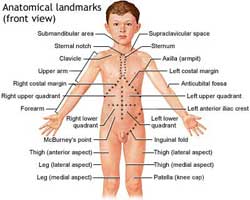Appendix Surgery in India
Plan your Appendix Surgery in India with Tour2India4Health Consultants
Tour2India4Health is #1 Medical Tourism company of India providing best Endoscopy Surgery. All you have to do is send us your query, an assistant will contact you within 24 hours for interaction. The rest will be taken care of, so you only have to sit back and relax!
How things function at Tour2India4Health Group:
- Primary formalities - Arranging visas, accommodation, appointment with top Endoscopy Surgeon by Tour2India4Health Team.
- Professionalism - Utmost care taken in selecting best suitable surgery by best of the medical fraternity, ensuring fast recovery.
- No compromising with the best - Treatment by Internationally Accredited Surgeons.
- Special packages - Find Knee Replacement Surgery treatment options that suit your budget so you don't have to put your health at stake.
- Surgical services - Arrangement of transportation, pre-surgery tests, medications, stay options for kin, health food as prescribed by attending doctors.
- Other vital services - Quick visa letter, flight ticket bookings, languagtors, foreign exchange facility, hotel arrangement.
 The appendix is attached to the large intestine at the point where the small intestine ends and the colon begins. Appendicitis is an inflammation of the appendix. Inflammation can occur when there is a blockage at the opening of the appendix into the large bowel. This blockage can sometimes be due to stool blocking the opening. When inflammation of the appendix occurs a person may experience certain symptoms.Treatment for appendicitis is surgical removal, or appendectomy, if the inflammation is contained to one area. If the inflammation progresses, the appendix can burst. If the appendix bursts then the infection can spread to the abdomen. If the appendix does burst before surgery, the surgeon may want to treat the infection first and then do surgery at a later time.
The appendix is attached to the large intestine at the point where the small intestine ends and the colon begins. Appendicitis is an inflammation of the appendix. Inflammation can occur when there is a blockage at the opening of the appendix into the large bowel. This blockage can sometimes be due to stool blocking the opening. When inflammation of the appendix occurs a person may experience certain symptoms.Treatment for appendicitis is surgical removal, or appendectomy, if the inflammation is contained to one area. If the inflammation progresses, the appendix can burst. If the appendix bursts then the infection can spread to the abdomen. If the appendix does burst before surgery, the surgeon may want to treat the infection first and then do surgery at a later time.
Prior to the development of minimally invasive surgery, surgeons traditionally performed an open incision and removal of the appendix. This technique required a larger incision to remove the appendix. Now patients commonly have a laparoscopic appendectomy, which is one of many minimally invasive procedures allowing the surgeon to perform the same surgery through a smaller incision benefiting the patient with less pain after surgery and a shorter hospital stay.You can expect to have three to four small abdominal incisions after surgery usually covered with a small band-aid. Some patients may have a drain after surgery that nursing staff will teach you how to care for at home. Many patients experience a minimal amount of pain/discomfort after surgery. When cleared by your physician you will be able to get out of bed and walk, begin to start eating, and be discharged home.
Overview & Description
 The appendix is a small, finger-shaped pouch of intestinal tissue extending from the cecum, which is the first part of the large intestine. Blockage of the opening of the appendix into the bowel by a hard small stool fragment (fecalith) is believed to be a frequent cause of appendicitis. The infected appendix must be surgically removed (emergency appendectomy), because if it becomes perforated (leaks), this can lead to infection of the entire abdominal space (peritonitis), which can be fatal.
The appendix is a small, finger-shaped pouch of intestinal tissue extending from the cecum, which is the first part of the large intestine. Blockage of the opening of the appendix into the bowel by a hard small stool fragment (fecalith) is believed to be a frequent cause of appendicitis. The infected appendix must be surgically removed (emergency appendectomy), because if it becomes perforated (leaks), this can lead to infection of the entire abdominal space (peritonitis), which can be fatal.
The surgery is done while the patient is unconscious and pain-free (using general anesthesia). A small incision is made in the right lower quadrant of the abdomen and the appendix is removed. Alternatively, the appendix may be removed laparoscopically (with a smaller incision, using a tiny camera to visualize the area).If a pocket of infection (abscess) has formed or the appendix has ruptured, the abdomen will be thoroughly washed out during surgery and a small tube may be left in to help drain out fluids or pus.
Appendectomy: Indications
Appendix removal is necessary in cases of acute appendicitis. Symptoms of acute appendicitis include:
- Abdominal pain (located in the lower right side)
- Fever
- Reduced appetite
- Nausea, vomiting
- Your health care provider will:
- Check your abdomen for tenderness and tightness
- Check your rectum for tenderness and an enlarged appendix
- Check your blood for an increase in white blood cells (WBC)
- Imaging studies will likely be used.
Go to the Enquiry Form
Phone Numbers Reach Us
India & International : +91-9860755000 / +91-9371136499
UK : +44-2081332571
Canada & USA : +1-4155992537
 There is no test to confirm appendicitis, and the symptoms may be caused by other illnesses. The health care provider must diagnose the condition based on the information you report and what he or she finds from tests and physical examination. Even if the surgeon finds that the appendix is not infected (which happens up to 25% of the time), he or she will thoroughly check the other abdominal organs and remove the appendix anyway in order to prevent future problems.
There is no test to confirm appendicitis, and the symptoms may be caused by other illnesses. The health care provider must diagnose the condition based on the information you report and what he or she finds from tests and physical examination. Even if the surgeon finds that the appendix is not infected (which happens up to 25% of the time), he or she will thoroughly check the other abdominal organs and remove the appendix anyway in order to prevent future problems.
There are three body views (front, back and side) that may be helpful if you are uncertain of a body area. Many areas are referred to by both descriptive and technical names. For example, the back of the knee is called the popliteal fossa. However, areas like the "flank" may not have both names, so the location may be unclear.
The esophagus, stomach, large and small intestine, aided by the liver, gallbladder and pancreas convert the nutritive components of food into energy and break down the non-nutritive components into waste to be excreted.
Browse through a series of illustrations for Appendectomy.
Appendectomy: Expectations after Surgery
Recovery from a simple appendectomy is usually complete and rapid. If the appendix has developed an abscess or ruptured, the recovery will be slower and more complicated, requiring use of medications to treat the infection (antibiotics).
Living without an appendix causes no known health problems.
Appendectomy: Convalescence & Recovery
Convalescence is usually short and most patients leave the hospital in one to three days after the operation. Normal activities can be resumed within one to three weeks after leaving the hospital.
Appendix Surgery in India is available in following cities:
| Mumbai | Hyderabad | Kerala |
| Delhi | Pune | Goa |
| Bangalore | Nagpur | Jaipur |
| Chennai | Gurgaon | Chandigarh |
Ms. Pamela Edwards from USA sharing her Appendix Surgery Experience in India

Ms. Pamela Edwards from USA
It was an emergency situation under which I had to get my appendix surgery performed and there was not much time to go research or take a second opinion as the inflammation could have increased with each minute of delay in the surgery, and that could have also raised the level of complications for the doctors. The doctors at Tour2India4Health actually proved that they can be trusted and replied upon with life in every situation. I am glad that I trusted them with the situation and went for the surgical treatment as it has helped me lead a better and healthy life since then.
Appendectomy: Risks
Risks for any anesthesia include the following:
- Reactions to medications
- Problems breathing
- Risks for any surgery include the following:
- Bleeding
- Infection
Additional risks for appendectomy that occurs with a ruptured appendix include the following:
- Longer hospital stays
- Antibiotic treatment
CAUTION:
Untreated acute appendicitis can be deadly. If you have symptoms suggestive of appendicitis (pain in the lower right abdomen, fever, loss of appetite, nausea, vomiting)
- DO seek emergency health care promptly (see your doctor immediately, call 911 or other local emergency number, or get to the emergency room).
- DO NOT use heating pads, enemas, laxatives, or other home treatment.
Go to the Enquiry Form
Phone Numbers Reach Us
India & International : +91-9860755000 / +91-9371136499
UK : +44-2081332571
Canada & USA : +1-4155992537
Some of the common countries from which patients travel to India for surgery are:
| USA | UK | Canada |
| Australia | New Zealand | Nigeria |
| Kenya | Ethiopia | Uganda |
| Tanzania | Zambia | Congo |
| Sri Lanka | Bangladesh | Pakistan |
| Afghanistan | Nepal | Uzbekistan |
- What is the cost for appendix surgery?
- Appendix surgery in India costs nearly half of that in developed nations. The treatment is handed by experienced and killed surgeon associated with our company. More treatment options and cost estimation can be availed by contacting our company executives, ready to help round the clock.
- How is the surgery performed?
- Surgery depends upon the condition of patient; this can be as an emergency or can be planned. if the appendix is painful and blackened immediate surgery is required. And if the appendix is no complicated, surgery becomes easy for the patient as well.
- How much time will it take?
- It takes normally 1½ - 2 hours of surgical process with general anesthesia. Patient is hospitalized for 3 days minimum and would last on recovery of patient that is 7 days.
- Are there any materials about this surgery that I can review?
- We have a large number of medical tourism articles for your perusal. You can go through testimonials, videos of international patients, links of which are available on our website, to help you in decision-making.
- What must I bring with me on the day of surgery?
- Keep your medical reports ready, bring all medications you may be taking prior to surgery. Your attending doctors will update you before hand on what you must carry ahead of the Surgery in India.
Below are the downloadable links that will help you to plan your medical trip to India in a more organized and better way. Attached word and pdf files gives information that will help you to know India more and make your trip to India easy and memorable one.
 Apollo Hospital
Apollo Hospital Fortis Hospital
Fortis Hospital Artemis Hospital
Artemis Hospital
 Medanta Hospital
Medanta Hospital



 Jaslok Hospital
Jaslok Hospital Lilavati Hospital
Lilavati Hospital

 Global Hospitals
Global Hospitals Jupiter Hospital
Jupiter Hospital













